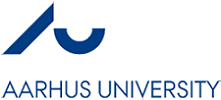Political science

Winter intake start date
2026-02-01
Winter intake deadline
2024-10-10
A Broad, Research-Oriented Degree Programme
What are the sources of democratic stability? Why do some countries have big and generous welfare states, while others do not? How do we prevent political radicalisation? How do we ensure an efficient and fair public sector? At the Department of Political Science our objective is to choose the right research strategies, methods and theoretical concepts that will enable us to answer such questions. This may involve conducting surveys, statistical modelling or interviews, spending hours at the library or going on field trips to the Middle East.
The MSc in Political Science is the flagship degree of our top European Political Science Department, whose high ratings and research attract academics from around the globe to its vibrant community of scholars. This is a high-quality, two-year programme for those who seek a comprehensive political science education focusing on research design and methodology. The programme gives students the possibility of specialising in the subfields of comparative politics, political theory, political sociology, international relations, public policy or public administration.
Quality Teaching in an Informal Learning Environment
The MSc in Political Science is dedicated to the highest-quality teaching in an informal and egalitarian learning environment. Students are always welcome to approach the teaching staff, whose doors are open to anybody, for example, if you wish to propose a supervised reading course. Students are expected to engage actively in classroom debates. They also collaborate in small-scale comparative projects that make up the most of the international study environment.
Variety and Opportunities
The MSc in Political Science is flexible, giving students the opportunity to design their own course programme. Talented students may even be offered a chance to work as research assistants on on-going projects. Some students will spend a semester abroad at one of our partner institutions or do an internship in a company or organisation.
Na studia magisterskie mogą kandydować wszyscy, którzy ukończyli studia licencjackie lub inżynierskie (studia I stopnia), studia magisterskie lub studiują na ostatnim roku studiów I-stopnia. Studia, które planujesz powinny mieć zbliżony profil do tych obecnych lub ukończonych, ponieważ w procesie rekrutacji kluczowa jest ich zgodność programowa.
Wykaz punktów ECTS – osoby, które są jeszcze w trakcie studiów, muszą załączyć wypis punktów ECTS, w którym będzie wykazane, jakie przedmioty były realizowane na studiach oraz ile punktów za nie otrzymano.
Dyplom ukończenia studiów licencjackich lub inżynierskich – jeśli jesteś absolwentem wyższej uczelni, nie potrzebujesz wypisu, wystarczy załączyć dyplom ukończenia studiów wraz z suplementem (w języku angielskim lub oryginał z tłumaczeniem)
Course description - należy przygotować dokument, zbierający cały sylabus ze studiów licencjackich. Takie sylabusy najczęściej są do pobrania na stronie uniwersytetu. Należy je przetłumaczyć na język angielski (można samodzielnie) i złączyć w jeden dokument. Warto też zapytać w dziekanacie uczelni, czy nie dysponują wersją angielską.
Oficjalna skala oceniania Twojej uczelni - możesz dostać taki dokument w dziekanacie Twojej uczelni lub skonstruować samodzielnie. W obu przypadkach dokument powinien zawierać pieczątkę dziekanatu.
Spełnienie wymagań w zakresie języka angielskiego można udokumentować w jeden z następujących sposobów:
IELTS – 6.5
TOEFL – 83 (Aarhus University TOEFL kod - 8935)
Uwaga: wymagania językowe mogą ulec zmianie. Przed wysłaniem aplikacji upewnij się jakie są wymagania językowe na konkretny kierunek bezpośrednio na stronie uczelni.
W przypadku zdawania certyfikatu IELTs upewnij się, czy uczelnia oprócz wymagań oceny końcowej nie ma również wymagań odnośnie ocen cząstkowych.
- In general, admission to a Master’s degree programme requires successful completion of a relevant and recognised university degree equivalent to a Danish Bachelor’s degree in level and length (180 ECTS).
- A Bachelor’s degree with a minimum of 80 ECTS within the fields of political science (comparative politics, political institutions, political conduct, political theory, political sociology, international politics, policy analysis and public administration and political science methodologies) and a minimum of 60 ECTS within the fields of political science (see above) or general social sciences (e.g. methodology, economics, sociology, psychology or law) and a minimum of 20 ECTS of political science research methods.
In addition to the general documentation requirements, you must upload the following documentation to your application:
- Statement of relevance: a brief statement in English (1-2 pages) which explains:
- the relevance of your Bachelor’s degree in relation to the Master’s programme
- your career plans
- the courses in your Bachelor’s degree which have particular relevance to the Master’s programme
- Curriculum vitae
- All applicants must submit a Curriculum Vitae (CV) describing your relevant educational and work experience in chronological order.
- You may enclose additional documentation of relevant work experience, letters of recommendation, etc.
Along with the application the applicant must upload:
- Course descriptions in English briefly describing the contents of the applicant's specific BA courses or other information that will contribute to describing the contents of the applicant's Bachelor's degree programme (may be translated by the applicant, but certified by the applicant's university).
- Official descriptions of relevant courses to be completed after the application deadline.
- An official description of the marking scale used at the applicant's home university.
The MSc degree in Political Science provides access to a number of jobs in both public administration and in private sector companies and organisations. Journalist, headhunter, consultant or folk high school principal are examples of the job profiles of political science graduates, but most graduates are employed as heads of departments or managers in Danish organisations and government institutions. The EU and the embassies also take their share of graduates with an MSc degree in Political Science.
